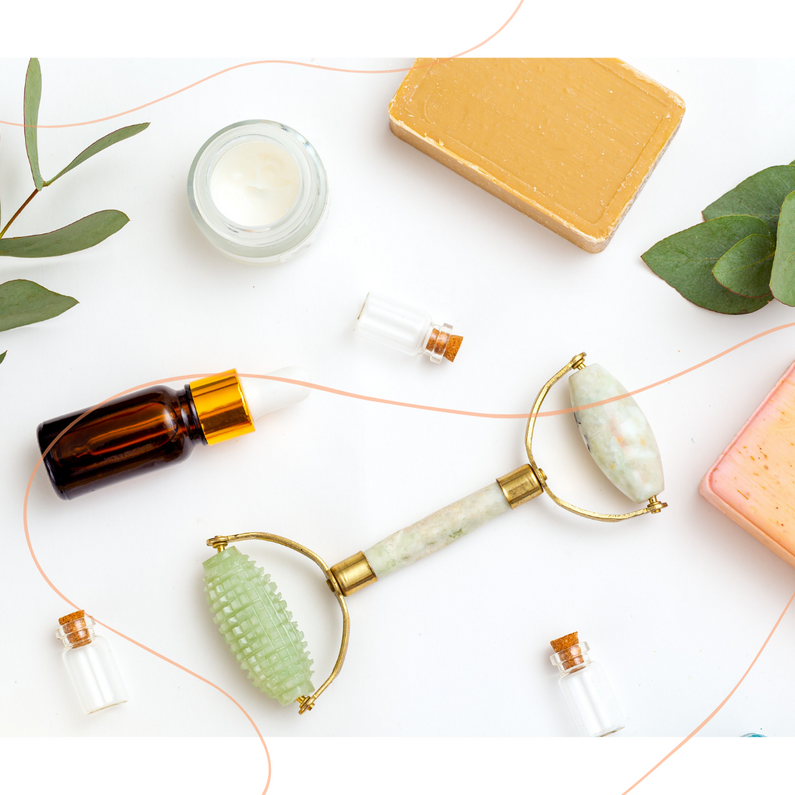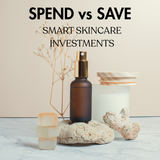Do You Know if Your Skincare Products are Safe?
Is My Skincare Safe?
The skin is an organ of the body that should be well cared for. From choosing a product to using it, everything should be considered carefully. Of course, many of us are considering natural products because of the immense benefits they offer, but sometimes it is hard to know which are actually safe to use.
Are there potentially dangerous ingredients lurking in your skincare products? There is no denying the fact that the FDA regulates and tests the ingredients in personal care products, but that’s a different ball game when it comes to regulating some of the ingredients and chemicals in cosmetics and skincare products. This means that some cosmetic ingredients need do not need to be FDA approved before they find their way to the local stores. Unfortunately, many ingredients and chemicals in our skincare products are not tested for toxicity and safety. The good news is that there are several ways to choose safe and effective products for your skin.
Why Care About the Ingredients in Your Skincare Products
What you apply to your skin is as important as the food you eat. Many of the chemicals and ingredients used in skincare products find their way to the bloodstream with ease. Some of the chemicals are linked to the following health conditions.
- Neurotoxicity
- Tumor growth
- Liver damage
- Cancer
- Skin damage
- Hormone problems
- Allergic reactions
It is, therefore, important to research on the safety of the skincare products you use on your body. Even if you find a product that claims to be all-natural and safe, it is imperative that you go through the ingredients.
Tips for Choosing Safe Skincare Products
Choosing the right skincare products for you can be a daunting task. Here are a few tips for choosing and buying safe skincare products.
1. Necessity
Your choice of skincare product depends on what you need and, more importantly, your budget. Before buying any product, ask yourself, do you really need the item? If it’s not necessary, then don’t buy it regardless of how attractive the offer might be.
2. Certification
Check to see if the product is certified by relevant agencies. Keep in mind that there are different types of certification, with each having its own significance and purpose. If you are shopping for products that contain 100% organic ingredients, then you need to know if they are real or fake. One way to find out is to check the product for any USDA organic certification logo or label such as 100% organic, organic, made with organic ingredients, etc.
3. Ingredients
Many skincare products are made of toxic substances that can be harmful to your health in the long term. So you need to ensure that you pick safe and effective skincare products that are tested and regulated. It is, however, important to read labels and choose ingredients you recognize.
4. Consult Professionals
Consult a professional dermatologist and ask questions. If you are finding it difficult to choose a product, it is best to consult experts in the skincare industry. They will know best about your skin type and advise you on the right product to choose to achieve glowing skin.
5. Safe Packaging
Last but not least, beauty packaging that is designed to protect and preserve the integrity of the ingredients is extremely important. The type of cosmetic packaging used for this purpose is the airless type of packagings, such as airless pump bottles or airless jars. Here is an example of what they look like. Click HERE.
Photo by Erda Estremera
Recent Posts
-
Why Supporting Cruelty-Free Skincare Matters (and How to Shop Ethically)
As consumers become more conscious of what goes into their skincare — and how it’s made — cruelty-fr …16th Dec 2025 -
Save Smart, Glow Better: Your Guide to Skincare Investments
Spend vs. Save – Where to Invest in Your Skincare Who doesn’t love a good deal? Finding a product yo …13th Oct 2025 -
How to Choose the Best Packaging Vendors for Handmade Beauty Products
Packaging plays a bigger role than just looking pretty—it protects your products, enhances shelf app …4th Sep 2025




